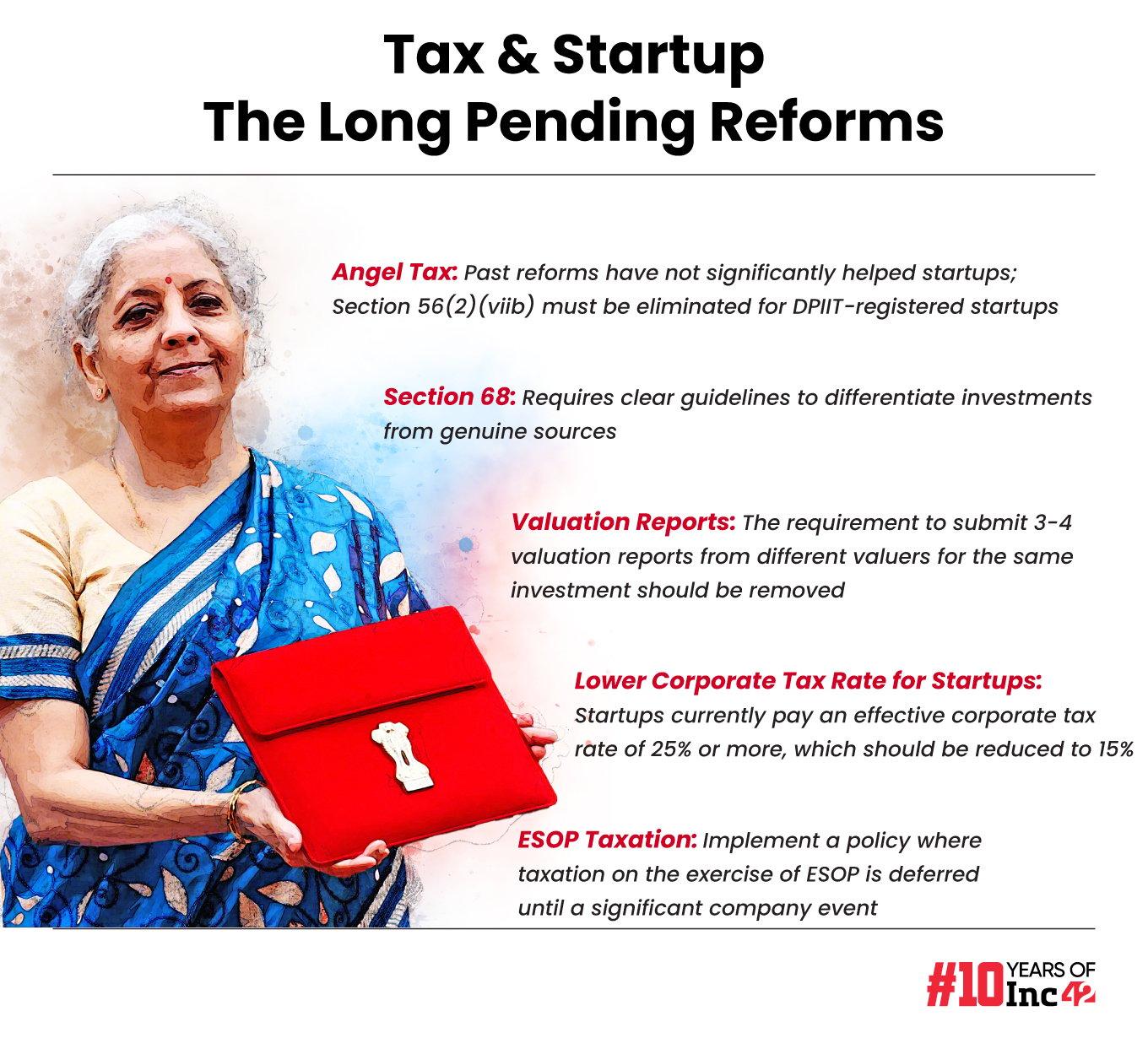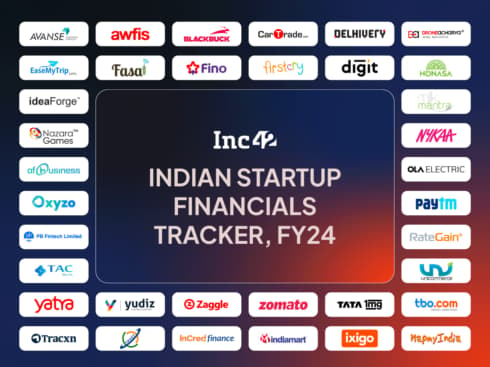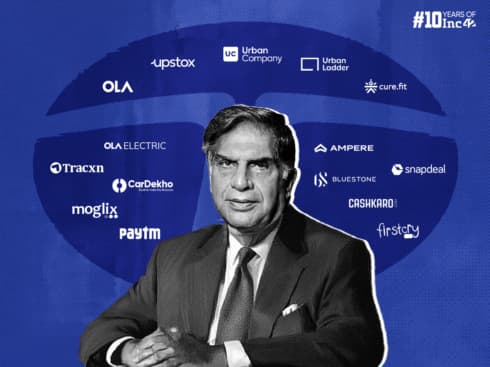As per Indian startup founders and experts, the ecosystem is crying for reforms on the tax front, while the overall sentiment of investors towards Indian startups and founders seems vibrant
To support the growth of startups in India in the long run, experts want the upcoming budget to duly address demons like angel and corporate tax, Section 68 of the Income Tax Act, and ESOP & Redomicile taxation regimes
While the Indian startup community has a list of long-pending expectations, the ball is in the FM’s court as the the world's third-largest startup ecosystem prepares itself to get a much-needed shot in the arm on July 23
Finance minister (FM) Nirmala Sitharaman is set to present the Union Budget 2024 on July 23, 2024, for the 7th time in a row. Over the last five union budgets, excluding this year’s interim budget, the Indian startup community has amassed a list of long-pending expectations.
While jotting down the list of expectations weeks before the FM’s budget speech, industry stakeholders told us that the country’s startup sector needs big reforms on the tax front. Not to mention, the taxation issue has proven to be the Achilles’ heel for Indian startups, impacting overall funding in the ecosystem.
For context — While a recent Inc42 survey of startup investors reveals the end of the funding winter, the Indian startup funding, in contrast, slipped 1.8% year-on-year (YoY) to settle at $5.3 Bn in the first six months (H1) of 2024.
The paradox, as per several industry experts, is that the ecosystem is crying for reforms on the tax front, while the overall sentiment of investors towards Indian startups and founders seems vibrant.
Nevertheless, before we delve any deeper into the demands and requests of the stakeholders, let’s steal a glance at the reforms that ought to be implemented with much empathy to ensure the comprehensive development of the startup state.

Founders, VCs Demand A Full & Final Resolution Of Angel Tax
The story of the infamous angel tax starts with the introduction of Section 56(2)(viib) in the Income Tax Act, 1961 on March 16, 2012. The Government of India included this subsection to keep shell companies at bay and tighten its noose on the generation and circulation of black money. This tax is payable on capital raised by unlisted companies if the value of the shares issued to investors exceeds their fair market value (FMV).
Despite over 52 notifications and clarifications by various bodies under the DPIIT, Ministry of Commerce and Industry, and the Ministry of Finance, the issue remains unresolved. In fact, according to the DPIIT secretary, Rajesh Singh, the DPIIT has recommended the removal of angel tax for startups multiple times.
According to Siddarth Pai, founding partner, CFO, and ESG officer of 3one4 Capital, “The exemption criteria stated in the Feb 19, 2019, DPIIT circular are extremely onerous for any startup. The bar on startups opting for the exemption from dealing in shares and securities, capital contributions, and giving loans and advances prevent them from creating ESOP trusts, subsidiaries, or JV entities. Given the 200% penalty for any violation for seven years since they last raised funds, it’s a 17-year bar (10 years as a startup + 7 years after) from pursuing such routine transactions. This feedback has been given since 2019 but to no avail.”
Additionally, so far, hardly about 9K of the 1 Lakh+ DPIIT startups have received exemptions from angel tax.
Echoing Pai’s sentiment, Sandiip Bhammer, founder and co-managing partner of Green Frontier Capital, said that a broader exemption framework that can be extended to all DPIIT-registered startups is the need of the hour. In addition, a streamlined and clear exemption process would assist startup founders in reducing administrative burdens and uncertainty around the exemption process.
Fairness & Transparency To Make Section 68 Less Scarier
Section 68 of the Income Tax Act deals with unexplained cash. Under this, startups are required to disclose complete details of their income, along with investments for a particular fiscal year, and any lapses in doing so can attract a penalty of up to 78%.
While investments are generally not categorised as income from other sources, however, if not disclosed properly, assessing officers may classify them as unexplained tax, which could result in penalties.
To resolve this, Archit Gupta, cofounder and CEO of ClearTax, suggests a few reforms that will protect startups from being burdened under Section 68.
According to Gupta, the Indian tax authorities need to provide clear guidelines on the documentation required to substantiate investments received by startups. In addition, the country needs a mechanism under which investments received from certain recognised sources are treated as genuine unless proven otherwise by the authorities.
Gupta goes on to add that Indian startups are in dire need of a dedicated fast-track dispute resolution mechanism, specifically due to Section 68, which makes them vulnerable to the discretion of assessing officers.
In addition, the ClearTax CEO demands the participation of the representatives of the Indian startup ecosystem, along with crucial industry associations and experts, in formulating policies under Section 68. He believes this to help the government aid startups with amendments that are fair and hold little ambiguity.
Need A One-Stop Solution For Valuation Reports
Currently, startups need to submit various valuation reports from different experts (registered valuers, merchant bankers, and CAs) to different entities like the RBI for FEMA requirements, the MCA, and the Income Tax Department for the same amount of funding.
While these incur a huge cost for startups, more often than not, these valuation reports do not conclude the same value of the startup.
The core issue is that tax authorities compare actual performance to projections and reject valuation reports if there is a deviation of more than 10%.
Pai said, “This is at the core of the angel tax issue. Not meeting projections is a commercial risk, not a taxable event. The entire premise of angel tax is deeply flawed and nothing but its removal can solve the issue.”
Last year, the IT department made changes to Rule 11 UA, introducing several valuation methods to provide more clarity and flexibility to startups and investors. Non-resident investors now have access to five valuation methods, including the Comparable Company Multiple Method, Probability Weighted Expected Return Method, Option Pricing Method, Milestone Analysis Method, and Replacement Cost Method.
However, as per Pai, this does not solve the issue.
Jitesh Agarwal, founder and CEO of Treelife, believes that the current requirement for startups to obtain valuation reports from SEBI-registered Category I Merchant Bankers for income tax purposes imposes significant financial burdens, especially for those raising smaller funding rounds.
To alleviate this, the specific mandate to secure a valuation from a CAT-1 SEBI registered Merchant Banker should be relaxed for startups. This change would reduce costs and simplify the funding process, making it more accessible for emerging businesses.
Notably, T.V. Mohandas Pai, the former CFO of Infosys and partner at Aarin Capital, too, has recommended the use of a single valuation report multiple times.
ESOPs & Redomicile Taxation Reforms
In India, Employee Stock Option Plans (ESOPs) are considered part of salary and are taxed under the Income Tax Act of 1961. The taxable amount is the difference between the market value of the shares when you get them and the price you paid. This amount is added to your income and taxed under one’s tax bracket.
Also, if employees sell their shares after holding them for more than two years, they are required to pay a long-term capital gains tax of 20% on any profit above INR 1 lakh in a year. However, if they sell their share within two years, the profit is treated as a short-term gain. This gain is added to the income and taxed as per the income bracket.
The initial market value of the shares (not the price you paid) is used to calculate the capital gains, which reduces the taxable profit. Moreover, ESOPs are taxed twice — at the time of being granted and when being sold.
According to experts, the overall ESOP taxation process is currently very complex due to factors like market value and exercise price, which leads to double taxation issues for employees.
On ESOP taxation reform policy, Gupta of Cleartax demands ESOPs, held for over two years, to be taxed only at the time of sale.
Agarwal of Treelife further suggests that a policy needs to be implemented where taxation on the exercise of ESOPs is deferred until the occurrence of a significant company event, such as a merger, IPO, acquisition, or third-party liquidity event. This change would align the tax impact with actual financial gains for employees, reducing the upfront financial burden and potentially enhancing employee retention and motivation.
Now moving onto the issue of redomicile, or as we prefer to call it — “Desh Wapsi”. Currently, several Indian startups desire to shift their base back to the country. While a few, including PhonePe, Razorpay and Groww have already done it, others like Meesho, Udaan, and Zepto are in the process.
However, the only setback is that the redomicile to India is a cost-heavy affair, as it requires startups to shell out massively in exit taxes and long-term capital gains.
For instance, PhonePe had to cough up INR 8,000 Cr to shift its headquarters back to India. On the other hand, Razorpay is mulling its merger with the India entity at a lower valuation to minimise the tax blow.
While industry stakeholders demand respite from tax burdens for startups looking for “Desh Wapsi”, they suggest that negotiating and signing bilateral tax treaties with key jurisdictions are expected to provide clarity on tax liabilities, prevent double taxation, and offer favourable tax treatment to entities relocating under specified conditions.
According to Gupta, advance rulings or certifications from tax authorities regarding the tax implications of redomiciling will go a long way in providing certainty to startups and their investors. Similarly, implementing transitional relief measures to mitigate the immediate tax impact of relocating, such as phased taxation or deferred tax payments over a specified period, is another way to go.
The industry experts Inc42 spoke with also seek tax exemptions or reductions for strategic relocations, especially for startups in priority sectors or those bringing substantial economic value and job creation to India. They also demand clear guidelines on the indirect tax implications, such as GST, for startups relocating their operations.
Meanwhile, Pai, who has closely worked with GIFT IFSC, mentioned that the “Onshoring Indian Innovation to GIFT IFSC” report by the IFSCA includes a comprehensive scheme to help startups relocate to India in a tax-free manner.
This initiative builds on the 2021 scheme to relocate funds to GIFT IFSC. Indian founders are hopeful that the upcoming budget will endorse this scheme, allowing flipped startups to redomicile to India with least or zilch tax burden. This move has the potential to spur many relocations and provide a strong pipeline of startups to tap into the Indian capital markets.
Corporate Tax & Other Demons
While much has been highlighted above, Startups hope the budget could signal at least a change in the area GST rationalisation.
Ramesh Bafna, CFO of Zepto, states that easing of the GST registration compliance through a proposed Tatkal system will address lengthy approvals time, allowing for faster expansion.
Moreover, releasing accumulated input tax credit (ITC) through proposals like selling ITC as tradable scrips, providing refunds for a stipulated period, and permitting cross-utilisation of CGST and IGST credits across group GST registrations will enable effective use of funds for business operations.
These measures, once implemented, will create a more conducive environment for startups, fostering innovation and economic growth in India. Any clarification and ease in regulations would benefit the startup ecosystem, helping it grow and achieve the PM’s vision for 1,000 unicorns.
Meanwhile, there is also a need to address the tax dispute issue. Addressing the elephant in the room, Gupta of ClearTax said that startups that wish to contest tax demands must deposit 20% of the tax amount upfront.
DPIIT-registered startups should be allowed either a reduced deposit rate or given leeway regarding the timing and amount of these deposits. This change would help protect the cash reserves of startups, which is a critical metric for their operation and growth.
A high corporate tax rate is another long-pending pain point for startups, which many like Gupta want to be lowered in a bid to get respite from tax burden and improve cash flow in the crucial early years of operation.
“The rates and holding periods between listed and unlisted, as well as foreign and domestic investors, should be bridged. It’s diverting domestic capital away from Indian startups and making the ecosystem overly reliant on foreign capital for survival,” said Pai.
The Blueprint For Startup Success
So far, tax reforms for startups have not been as consistence as they should be. This, in turn, has only complicated the current state of Indian startups, per startup founders and VCs.
To support the growth of startups in India in the long run, Sitharaman’s strategic blueprint should be aligned to duly addressing the aforementioned areas. Building clear and transparent tax policies and implementing measures to reduce tax burden should rank high on FM’s priority list.
And, to support these developments, DPIIT also needs to take a few steps starting with the very definition of startups. Gupta said, “There is ambiguity in the definition of what constitutes a ‘genuine startup’ eligible for exemption. Providing clearer criteria and guidelines can prevent misuse of the exemption and provide certainty to startups and investors alike.”
To sum it all up, offering tax credits and incentives for research and development (R&D) activities will encourage innovation and technological advancements. Facilitating the redomiciling of startups to India by minimising tax liabilities and ensuring a smooth transition is also a crucial part of the game. Furthermore, ESOP taxation reforms should align tax impact with actual financial gains for employees, promoting retention and maximising benefits.
Addressing specific tax issues such as the elimination of Section 56(2)(viib) for DPIIT-registered startups and providing clear guidelines for Section 68 to differentiate genuine investments are critical steps. The requirement for multiple valuation reports should be removed, and the effective corporate tax rate for startups should be reduced to 10-15%.
Incorporating these strategic measures into Budget 2024 will pave the way for a more favourable and supportive environment for startups in India, unlocking their full potential and driving economic growth.
































 Ad-lite browsing experience
Ad-lite browsing experience